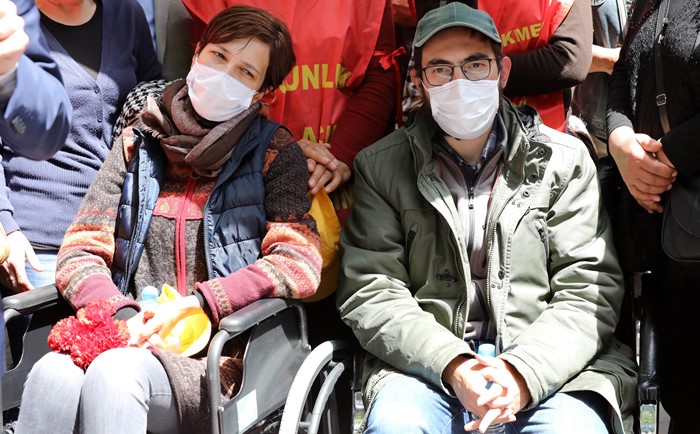Lawyers for hunger striker teachers Nuriye Gülmen and Semih Özakça have said the jailed educators, who are on the 155th day of a hunger strike, are being held under conditions of “severe confinement” in the hospital, the Diken news website reported on Wednesday.
The educators, who were on the 76th day of a hunger strike to protest their dismissal when they were arrested on terror charges on May 23 in Ankara, were taken to the prison hospital against their will.
The lawyers for Gülmen and Özakça held a press conference to give information about the situation of the teachers and said their right to have visitors and talk on the phone is being arbitrarily limited.
The two are not allowed to have a companion; they have to do their own cleaning and prepare the liquids they drink. They do not have air-conditioning and have no chance of seeing any sunlight. They are being disturbed at least five or six times a night. Their right to have books is being restricted, and they are not given the books they want. The letters of Semih are seized and packages sent to Nuriye have not been given to her for 15 days, said the lawyers.
The European Court of Human Rights’s (ECtHR) recently rejected a request by Gülmen and Özakça to order the Turkish government to release them on grounds of health. The court ruled that the detention of Gülmen and Özakça “did not pose a real and imminent risk of irreparable harm to the life or limb of the applicants” and suggested applying to domestic courts.
While the court asked the jailed educators to end their hunger strike, it also told Ankara to give permission to doctors to examine Gülmen and Özakça. Doctors had said in June that the health of the teachers was becoming more critical.
The educators said their strike aims to draw attention to the situation of more than 150,000 dismissed state employees. The Turkish government started a crackdown on opposition in the wake of a botched coup attempt on July 15, 2016 and arrested more than 50,000, dismissing or suspending around 150,000 judges, teachers, police and civil servants.
